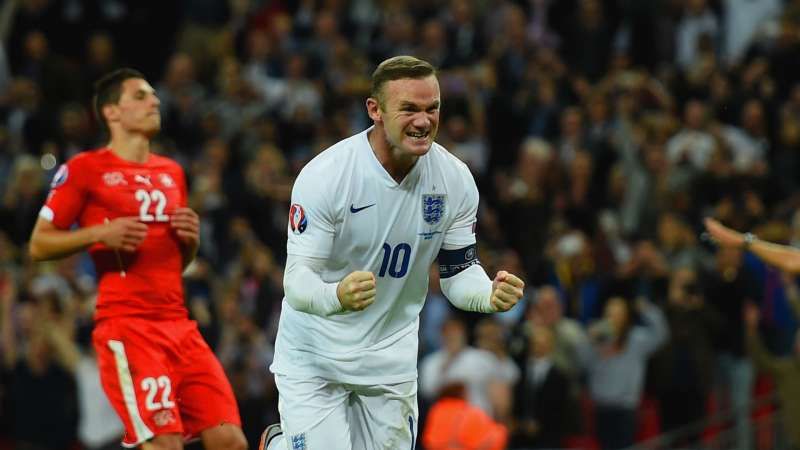
Hometown hero Rooney right to call time on England days

Wayne Rooney celebrated with unbridled joy when he scored the winning goal against Stoke City on his return to Premier League action for Everton at Goodison Park.
On Monday, the 31-year-old made it two in two this season and there was no little mischief in his ear-cupping reaction as he lapped up netting against Manchester City. It was his 200th goal in the top flight, the latest landmark in the incredible career of Manchester United and England's leading goalscorer.
The joy and mischief were all the more noticeable as they were qualities that fizzed from Rooney the teenage sensation, but elements that seem to have been missing entirely during the trials of recent seasons.
For the second half of Roy Hodgson's ill-fated tenure as England manager, debate raged over whether the captain merited his place in the starting XI. He spent the 2014 World Cup on the left wing and Euro 2016 in midfield.
Similar conversations dominated the start of last season at Manchester United where, despite Jose Mourinho's public support for his skipper, Rooney's ailing form saw him dropped.
Every squad selection for club and country had come to play out as a referendum on Rooney's worth. There was no joy to be found in such an unbecoming spectacle.
His omission for the Three Lions games against Scotland and France in June remained headline news, even if it was by now expected.
A change of scenery seemed necessary and one to appeal to the romantics arrived. Not Major League Soccer or the Chinese Super League; back on Merseyside where it all began. Once a Blue, always a Blue.
Seeing flashes of the powers of old in Rooney over the past two weeks stirred fans across the country. It stirred Gareth Southgate as well.
Congratulations on an incredible @England career! https://t.co/hpBwoPwvre pic.twitter.com/7FuSSEOnWT
— Everton (@Everton) August 23, 2017
When the England boss made the call, asking whether Rooney would be available to face Malta and Slovakia, declining the invitation must have been hard for a fierce competitor with a curiously mixed international legacy given his superb return of 53 goals in 119 games.
But it feels unquestionably like the right decision.
Rooney's explosion on to the global stage at Euro 2004 as a fearless, brilliant 18-year-old still stands as his finest hour for England.
He menaced defences and hit braces against Switzerland and Croatia before a broken metatarsal during the quarter final against hosts Portugal – his team-mates went out on penalties – provided England fans with their most recently valid "what if" moment.
Those performances in Portugal propelled Rooney towards Manchester United and superstardom. Bobby Charlton's records would eventually tumble at his feet and he continued to be England's main source of inspiration.
However, major tournaments became an ordeal.
The 2006 World Cup began in a race to be fit and ended in red-card disgrace, while Steve McClaren's rudderless assortment failed to make Euro 2008.
A particularly cruel blow came in 2010 when, in the form of his life, Rooney suffered a sprained ankle against Bayern Munich. He regained fitness but not the Midas touch for the World Cup in South Africa, where his most notable contribution was heckling England fans down a television camera.
53 goals. 119 games. Forever a #ThreeLions legend.
— England (@England) August 23, 2017
Thank you, @WayneRooney. pic.twitter.com/j5iT6XHJKz
From that point onwards, the prospect of Rooney spearheading the end of half a century of toil for football's oldest nation grew gradually more remote.
"Leaving Manchester United was a tough call but I know I made the right decision in coming home to Everton," he said in his retirement statement. "Now I want to focus all my energies on helping them be successful."
Focus. Energies. The renewed purpose and vigour drips from these words. Why risk interrupting a potentially golden last chapter by reopening the scars that ruefully dot an excellent international career?
Rooney burned so brightly for England that it is understandable Southgate would want to stoke the embers at the first sign of a spark. But he owes England nothing. It is the right time to let go.